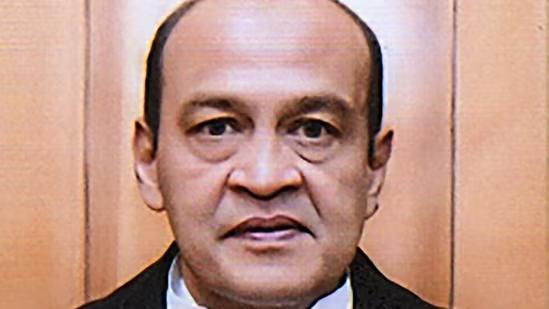
Judge Varma Caught in Cash Scandal Moves SC Against His Potential Impeachment
In a shocking turn of events, former Delhi High Court judge Yashwant Varma has moved the Supreme Court against the inquiry report submitted by a Supreme Court-constituted panel that urged Parliament to initiate his impeachment. The panel was formed on the orders of former Chief Justice of India (CJI) Sanjiv Khanna.
The controversy surrounding Judge Varma began when bundles of burnt notes were recovered from his house during a raid by the Income Tax Department in May 2022. The probe reportedly revealed that the notes were part of a larger stash of unaccounted cash, which led to widespread outrage and calls for his impeachment.
The Supreme Court-constituted panel, comprising three former judges, was formed to investigate the allegations against Judge Varma. The panel, after conducting a thorough inquiry, submitted its report to the Supreme Court, recommending that Parliament initiate the process of impeaching Judge Varma.
However, Judge Varma has now moved the Supreme Court, challenging the inquiry report and claiming that the panel arrived at its conclusions without giving him a fair hearing. According to sources, Judge Varma has argued that the panel did not provide him with an opportunity to present his side of the story and that the report is based on “unsubstantiated” and “unverified” allegations.
The Supreme Court has agreed to hear Judge Varma’s plea and has issued notices to the government and the panel, seeking their response to the allegations made by the former judge. The case is likely to be taken up during the upcoming monsoon session of Parliament, which is expected to begin in July.
The controversy surrounding Judge Varma has sparked a heated debate about judicial accountability and the need for stricter measures to prevent corruption within the judiciary. Many have argued that the incident highlights the need for greater transparency and accountability within the judiciary, and that Judge Varma’s actions are a betrayal of the trust placed in him as a judge.
Others have criticized the Supreme Court-constituted panel, arguing that it was biased and did not conduct a thorough inquiry into the allegations against Judge Varma. They have also raised questions about the credibility of the report and the conclusions drawn by the panel.
The government has maintained that it will take a decision on Judge Varma’s impeachment after carefully considering the inquiry report and all relevant facts and evidence. However, many have called for swift action to be taken against Judge Varma, arguing that his actions have brought disrepute to the judiciary and undermined public trust in the institution.
The controversy has also raised questions about the powers and limitations of the Supreme Court in dealing with allegations of corruption against judges. While the Supreme Court has the power to initiate proceedings against judges accused of corruption, many have argued that it is not the right forum to deal with such cases.
In conclusion, the controversy surrounding Judge Varma is a stark reminder of the need for greater transparency and accountability within the judiciary. While the Supreme Court-constituted panel’s report has recommended Judge Varma’s impeachment, the former judge has moved the Supreme Court, challenging the report and claiming that he was not given a fair hearing. The case is likely to be taken up during the upcoming monsoon session of Parliament, and it remains to be seen what action will be taken against Judge Varma.
Source:






